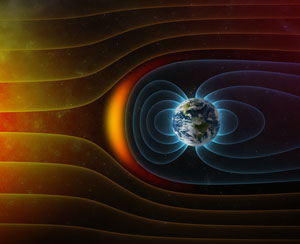Asia-Pacific accounted for the highest market share of the global permanent magnet market in 2015, with 56.5 percent (applications by region) in terms of value. BCC Research reveals in its new report that increasing demand for permanent magnets in line with increasing demand for electronic devices, medical devices, electronic motors, and generators, will continue to expand the market of this dominate region.
The global permanent magnet market has been increasing at an average rate of 10 percent to 15 percent, due to increased demand from the intermediate as well as end-user industries. In this report, permanent magnets comprise four major types of magnets: alnico, neodymium, samarium-cobalt and ferrite/ceramic magnets.The global market should reach $13.4 billion and $20 billion in 2015 and 2020, respectively, reflecting a five-year compound annual growth rate (CAGR) of 8.4 percent. In terms of volume, the neodymium magnet segment should grow the fastest among all segments, at a five-year CAGR of 9 percent. By the end year, this segment should reach 137.2 thousand tons and a market value over $10.7 billion. The ferrite/ceramic magnet segment, the second-highest growth in terms of value and volume, should grow at a five-year CAGR of 8.3 percent and total almost $8.6 billion.The major growth drivers for the global permanent magnet market include global automotive industry growth; increasing reliance on electronic devices around the world; and increasing applications and demand for industrial purposes such as in renewable energy, healthcare, aerospace and defense, and IT industries.By 2020, Asia-Pacific should remain the largest market in the overall permanent magnet market, with a market share of 58.2 percent, in terms of value. However, North America is estimated to become the second-largest market, followed by Europe with market shares of 18.8 percent and 18.4 percent, respectively.“For the forecast period, the consumption in Asia-Pacific should reach nearly 666.4 thousand metric tons, valued at $11.6 billion in 2020,” says BCC Research analyst Aneesh Kumar. “The increase is primarily due to increasing demand for ferrite and rare earth magnets on the back of rapidly increasing demand for electronic devices, medical devices, electronic motors and generators, among others in the several emerging economies present in this region.”Permanent Magnets: Technologies and Global Markets (AVM029C) analyzes the industry based on the magnetic material used in production, with focus on rare earth-based permanent magnets, namely neodymium-iron-boron and samarium cobalt magnets, along with ferrite and aluminum-nickel-cobalt magnets. Analyses of global market drivers and trends, with data from 2014, 2015, and projections of CAGRs through 2020 also are provided.Editors and reporters who wish to speak with the analyst should contact Steven Cumming at steven.cumming@bccresearch.com.



